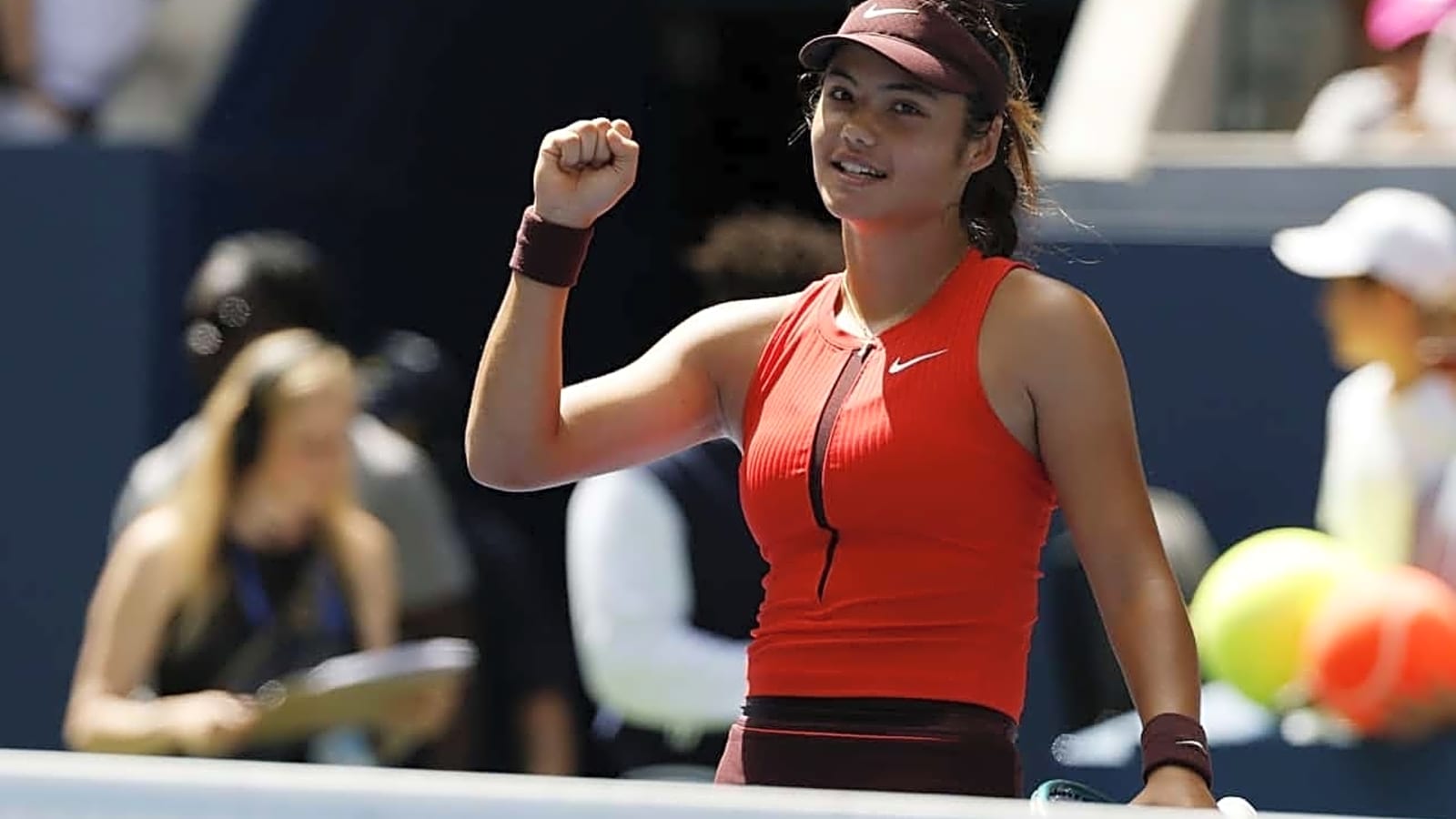
Another day, another high-profile tennis player tapping out mid-match. This time, it was Britain’s own Emma Raducanu, who bowed out of the Wuhan Open in a scene that’s becoming distressingly familiar. Down 6-1, 4-1 to Ann Li, Raducanu called it quits, sparking yet another round of the “are we working these athletes to death?” conversation. Honestly, it’s a valid question.
The 22-year-old was visibly struggling on the court, looking dizzy and unwell before a medical team finally intervened. It wasn’t just a bad day at the office; she was seen clutching her chest, and the physio was checking her temperature and blood pressure. It was a worrying sight for anyone watching, a stark reminder that these athletes aren’t indestructible robots programmed for our entertainment.
The conditions in Wuhan were, to put it mildly, brutal. With humidity hovering around 60% and temperatures hitting 35 degrees Celsius (that’s 95°F for those playing at home), it was less a tennis match and more a survival challenge. You have to wonder at what point the organizers start prioritizing player well-being over a packed schedule. Sky Sports commentator Jonathan Overend hit the nail on the head, suggesting Raducanu probably should have called for help much earlier. But you know athletes—they’re wired to push through the pain, often to their own detriment.
A Concerning Pattern for Raducanu and Tennis
This isn’t just a one-off incident for Raducanu or for tennis in general. This withdrawal is another chapter in the saga of her post-US Open career, which has been plagued by injuries and inconsistent form. Fans have been on a rollercoaster of emotions, celebrating her highs and collectively holding their breath during the lows. This latest episode just adds another layer of concern for a player who carries the weight of a nation’s expectations.
But let’s zoom out. Raducanu is just the latest name in a long list of players who have withdrawn or retired during the recent Asia swing. Six-time Grand Slam champion Iga Swiatek didn’t mince words, calling the tennis schedule “overwhelming.” When the world’s top players are sounding the alarm, maybe it’s time for the powers-that-be at the WTA and ATP to listen. It feels like we’re watching a real-time experiment on the limits of human endurance, and the results aren’t pretty.
What Does This Mean for the Sport?
It’s easy to be cynical. Is this just the price of modern professional sports? Maybe. But it doesn’t have to be. The constant travel across time zones, the back-to-back tournaments in extreme weather, it all takes a toll. Players are being pushed to their physical and mental breaking points. The result? More injuries, more retirements, and a product that ultimately suffers. Nobody wins when a marquee player has to forfeit a match because they’re about to collapse from heat exhaustion.
Ann Li, Raducanu’s opponent, was gracious in her post-match comments, wishing her a speedy recovery. But her apathetic tone said it all: “Not sure what [happened], but [it] looked like she wasn’t feeling good.” It’s become so commonplace that it barely registers as a shock anymore. It’s just another day on the tour.
For Raducanu, the path forward is uncertain. She had openly stated her goal was to secure a seeded position for the Australian Open. This retirement is a significant setback. More importantly, though, it’s a wake-up call. Her health has to be the top priority, even if it means adjusting her schedule and ambitions. Because what’s the point of being a top-seeded player if you’re too broken to compete.
More must-reads:
- Coco Gauff surpasses Serena Williams, Venus Williams feat with Wuhan victory
- Jessica Pegula completes impressive feat with Wuhan victory
- The 'Most starts by an NFL quarterback' quiz
Breaking News
Trending News
Customize Your Newsletter
 +
+
Get the latest news and rumors, customized to your favorite sports and teams. Emailed daily. Always free!








